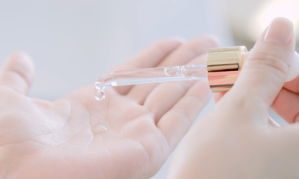A pimple is a kind of acne that develops as a result of clogged pores caused by an excess of oil (sebum), dead skin cells, and bacteria becoming trapped in the skin’s pores.
Acne is a long-term skin problem caused by oil glands at the base of the hair follicle, which can result in a variety of non-inflammatory and inflammatory skin lesions such as pimples, whiteheads, blackheads, pustules, cysts, and other skin lesions.

Acne’s Causes, Triggers, and Risk Factors
Acne is said to be caused by certain factors.
The most prevalent cause is puberty.
Sleep deprivation or lack of sleep due to stress Irregularities
Hormonal shifts
Inadequate hydration
Susceptibility to Disease
Steroids, for example, are a type of medication.
Pimples on the forehead can be caused by dandruff.
Excessive perspiration and high humidity
Pollution, aggressive skin care products, pollutants, and UV radiation all contribute to a harsh environment.
Using tobacco and consuming alcoholic beverages
Excessive consumption of milk products, dark chocolates, and foods heavy in sugar or sweets may aggravate acne.

Acne Types Based on Severity
Acne is graded based on how severe it is.
Acne that isn’t severe A modest number of mildly irritated tiny pimples or pustules, or a few whiteheads and blackheads
Acne that is moderate in severity
On the face, there are more blackheads, whiteheads, numerous pimples, and pustules.
Acne Severe
On their skin, they have a lot of whiteheads and blackheads, a lot of papules and pustules, and painful nodules.
Marks of pimples
After the inflammation has subsided, skin damage causes dark spots (pink or brown) called hyperpigmentation. Excessive sun exposure or popping pimples causes an increase in melanin production throughout the healing process, which results in hyperpigmentation.
5 Simple Ways to Get Rid of Acne and Pimple Marks
Having pimples can make you feel insecure. Effective Acne Prevention Tips with Dos and Don’ts
Keep your skin clean.
Cleanse your face twice a day with lukewarm water and mild soap/face wash to remove extra grime, sweat, and oil.
Don’t rub your face too hard.
After washing, always hydrate your skin with a moisturiser.
Repeatedly touching your face is not a good idea.
Hair should be washed on a regular basis and kept away from the face.
Avoid wearing a lot of makeup.
To avoid hyperpigmentation, use an excellent oil-free sunscreen.
To avoid infection and scarring, don’t squeeze whiteheads, blackheads, or pop pimples.
Interventions in Diet and Lifestyle
Drink plenty of water to keep your skin nourished and bright.
Increase your intake of fresh fruits and vegetables.
Meditation, yoga, and a healthy lifestyle can help you de-stress.




